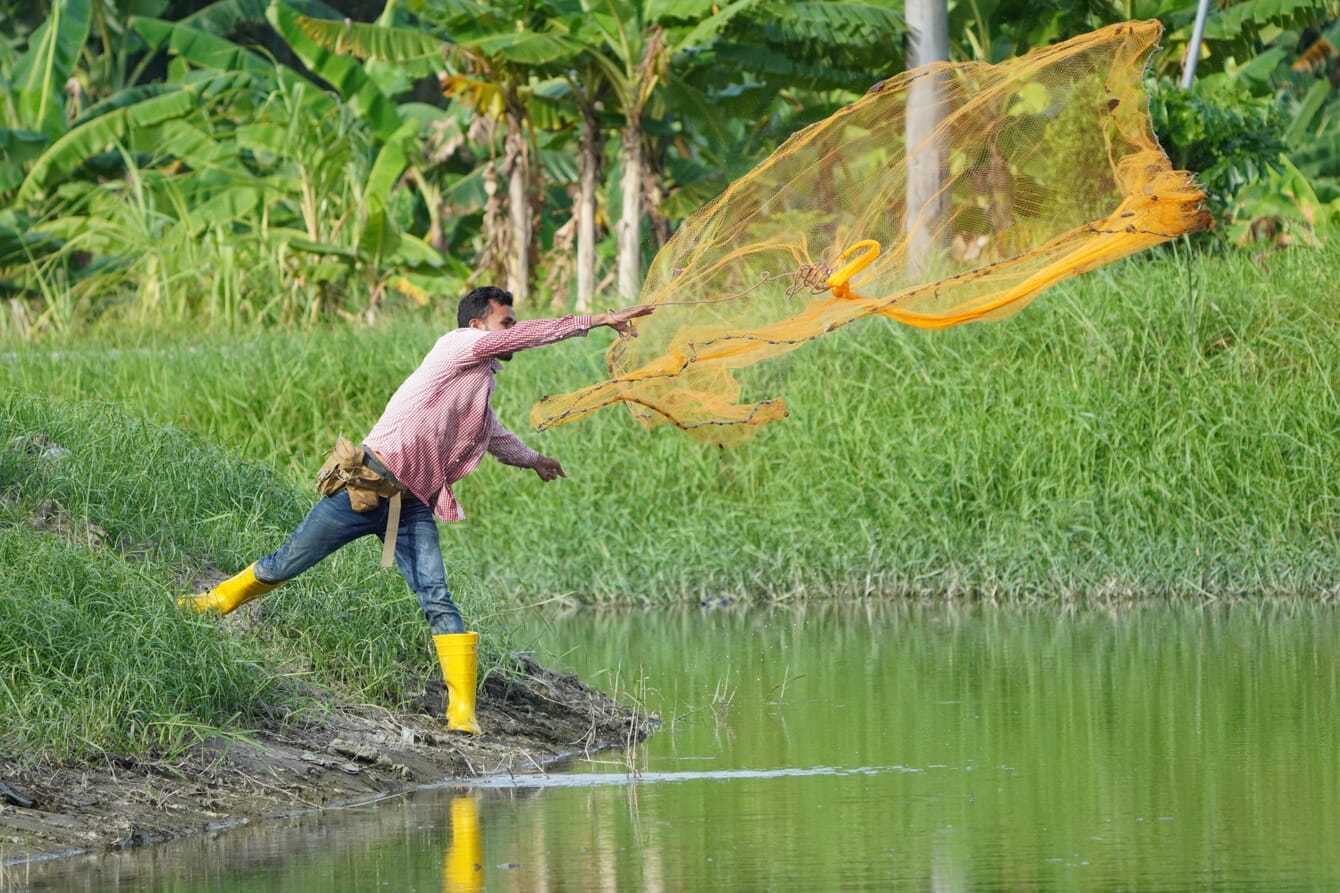
800 million people depend on small-scale fisheries and aquaculture for their livelihoods. © WorldFish
Animals, plants and microorganisms harvested and grown in water play a significant role in sustainably feeding and nourishing the world. Globally, 800 million people depend on small-scale fisheries and aquaculture for their livelihoods. But these vital aquatic food systems are hindered by the insecure livelihoods of those in related jobs, their low capacity to adapt to climate change and the loss of marine nature.
The Asia-Africa BlueTech Superhighway, supported through the UK’s Climate and Ocean Adaptation and Sustainable Transition (COAST) programme under the umbrella Blue Planet Fund (BPF), will focus on enabling communities to adapt to and mitigate against climate change as well as responsibly and sustainably manage marine and coastal nature and resources resulting in improved food and nutritional security as well as employment and income opportunities.
Commenting on the announcement, Minister for Overseas Territories, Commonwealth, Energy, Climate and Environment at the Foreign, Commonwealth & Development Office (FCDO) The Rt Hon Lord Goldsmith said: “The UK’s £500-million Blue Planet Fund is already helping to support more sustainable seafood production and marine protection. Today’s partnership with WorldFish for the Asia-Africa BlueTech Superhighway project will enable us to test and scale innovative climate-resilient and nature-positive solutions to strengthen coastal food security in Africa and Asia.”
According to a news release, the Asia-Africa BlueTech Superhighway will target strengthening aquatic food systems in Africa and Asia, through scaling successful existing innovations championed by WorldFish across the Global South, as well as testing new approaches and technologies. This includes schemes to foster marine and coastal ecosystem conservation, data-based systems for better management of small-scale fisheries and integrated seawater farming where fish can be reared alongside algae and shellfish.
While aiming to increase the production of aquatic foods significantly, the Asia-Africa BlueTech Superhighway will also target post-harvest fish processing technologies including solar tent dryers and smoking kilns that can reduce the significant waste in fish value chains, estimated at over £18 billion a year from discarded fish alone. The programme will also build connections between governments, the private sector and others across both continents to share lessons and approaches to addressing shared challenges.
Outlining the expected outcomes of the project, WorldFish director general and CGIAR senior director of aquatic food systems Dr Essam Yassin Mohammed said:
“Targeting assault on marine ecosystems compounded by climate change, this project will help to realise the great potential of sustainable, low carbon and nature-positive aquatic food systems to strengthen food security, livelihoods and economic growth in some of the world’s most vulnerable populations.”
The Asia-Africa BlueTech Superhighway aligns with the May 2022 UK Government Strategy for International Development, especially the goals of “providing women and girls with the resources and freedom they need to succeed” and “taking forward work on climate change, nature and global health”.




